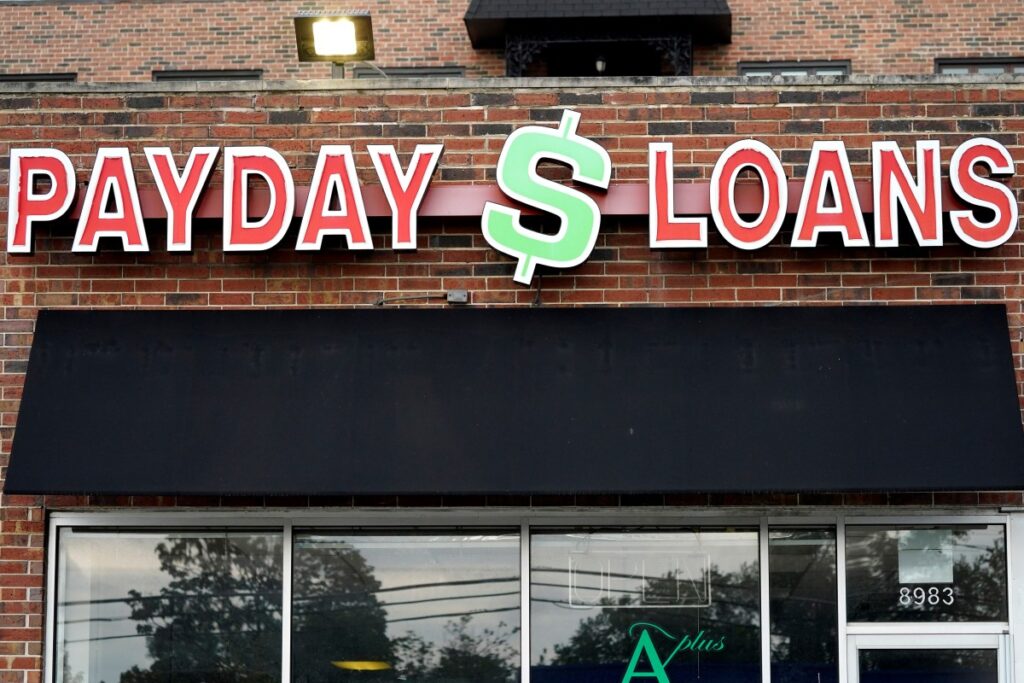in one blow In response to a conservative legal movement, the U.S. Supreme Court has ruled that the Consumer Financial Protection Bureau is not, in fact, an unconstitutional abomination.
The independent agency, which oversees payday lenders, credit card companies and student loans, has long been a partisan target. And as it turned out, that funding mechanism was found to be entirely constitutional, the court ruled in a 7-2 decision Thursday.
The conclusion was simple and clear. When it created the CFPB, Congress passed legislation authorizing the disbursement of funds from certain sources. The court ruled that this met the spending clause of the Constitution.
Attacks on the CFPB are not the only challenge raised by conservative opponents of modern regulators this term. In cases yet to be decided, the Supreme Court will consider whether to scale back the powers of the Securities and Exchange Commission and water down landmark standards for all regulatory oversight. A challenge to the National Labor Relations Board is underway in lower courts.
In all three cases brought to the Supreme Court this term, prominent conservative legal figures called on the justices to reduce the administrative state. But the CFPB's challenge even lost Justice Clarence Thomas, who wrote the majority opinion, as well as three other members of the court's conservative supermajority. Only Justices Samuel Alito and Neil Gorsuch dissented.
As The Intercept reported last year, the lawsuit was filed and funded by payday lenders, which argued that the way CFBP is funded is unconstitutional. If so, every regulation the CFPB has ever issued could potentially be invalidated, including rules on high-interest loans issued in 2017, which frustrated payday lenders. Ta.
Congress designed the CFPB in response to the 2008 financial crisis to shield it from certain political winds through provisions that cut off its funding and leadership in a way that is different from most federal departments. Four years ago, in a sign that the Roberts court was eager to hear this kind of broad challenge, the Supreme Court struck down the CFPB's leadership provisions but left everything else in place.
The latest attempt to end the CFPB has undeniably conservative origins. In 2022, a panel of the Fifth Circuit Court of Appeals, all appointed by former President Donald Trump, ruled that the CFPB's funding mechanism was unconstitutional.
Former Attorney General Noel Francisco, who clerked for the late Justice Antonin Scalia and infamously refused to defend the CFPB during the Trump administration, defended payday lenders before the Supreme Court. Numerous friend-of-the-court briefs, including conservative heavyweights such as the U.S. Chamber of Commerce, the New Civil Liberties Union, the Republican Attorneys General Coalition, and the almighty John, urge the court to sink the CFPB or at least fund it. requested that it be discontinued. Eastman.
A majority of the Supreme Court rejected this, rejecting these arguments and concluding that the funding model was indeed constitutional.
What divided the justices within the majority was one of the central disagreements that Scalia and his fellow originalist revolutionaries raised on the court. So, should ancient history matter when governments are faced with thoroughly modern problems like credit card fines and semi-automatic weapons regulation?
Judge Thomas is an originalist, going back to the Middle Ages, Magna Carta, and the Glorious Revolution. His opinion, signed by a majority, focused on how the First Congress allocated funds to government agencies, which rarely extended beyond 1800.
Justice Elena Kagan also noted in a concurring opinion that several more centuries should be considered. “How our government has worked in practice throughout our experience provides another reason to support Congress' decisions on how to fund the CFPB,” Kagan wrote. Justice Sonia Sotomayor co-signed the opinion, along with conservative Justices Amy Coney Barrett and Brett Kavanaugh.
Justice Ketanji Brown Jackson, on the other hand, writing only for himself, suggested that there may be limited lessons from ancient history for 21st century issues such as financial regulation. . “In response to the devastation caused by the 2008 financial crisis, Congress passed and the President signed the Dodd-Frank Wall Street Reform and Consumer Protection Act,” she wrote, challenging the CFPB. One payday lender pointed out, “It was exactly the type of organization that would be a financial institution.'' Congress may have been concerned about the influence that the bureau's ancestors had sought to regulate. ”
“An important aspect of the Constitution's durability is that it empowers the political branch to meet new challenges by enacting new laws and policies without undue interference from the courts,” Jackson said. wrote.
In their dissenting opinions, Justices Alito and Gorsuch bellowed at the CFPB: “The framers will be shocked and even horrified.” Alito's dissent cites Montesquieu, the practices of the “early Stuart kings” of the 1600s, the accounting techniques of Alexander Hamilton, and Sir Matthew Hale, the infamous 17th century witch trial judge who created the legal system. I shouted for no reason. The idea that a husband cannot be prosecuted for raping his wife continues to plague legal systems around the world.
Alito concluded, “Today's decision is not faithful to the original understanding of the appropriations clause and the centuries of history that created the spending requirements, and I respectfully disagree.”
The court is expected to issue the remaining decisions on the regulator's powers and structure by July.
Sen. Elizabeth Warren of Massachusetts, who as a law professor proposed the creation of the CFPB, praised the ruling but looked ahead to the challenges ahead.
Warren: “This will not be the last attack on the CFPB by Wall Street, the banks, and their Republican allies.'' tweeted.


